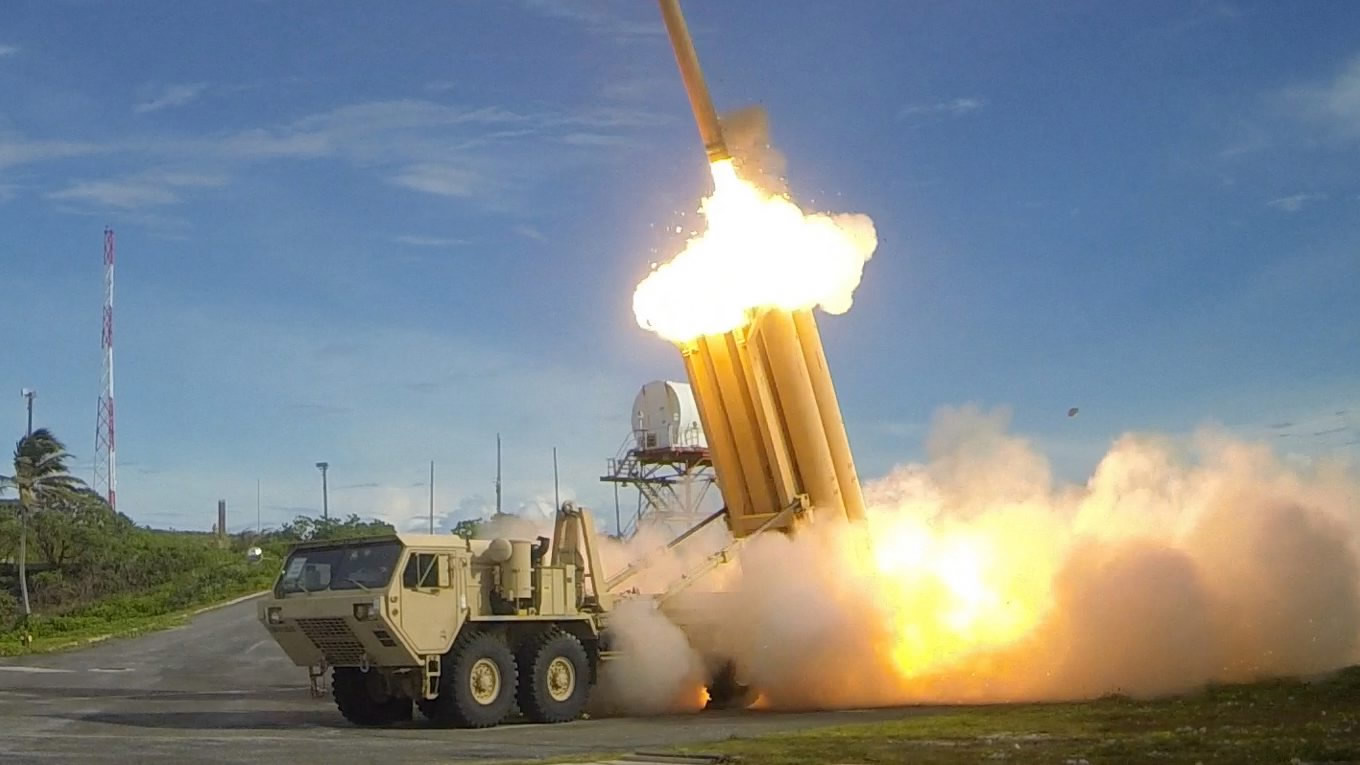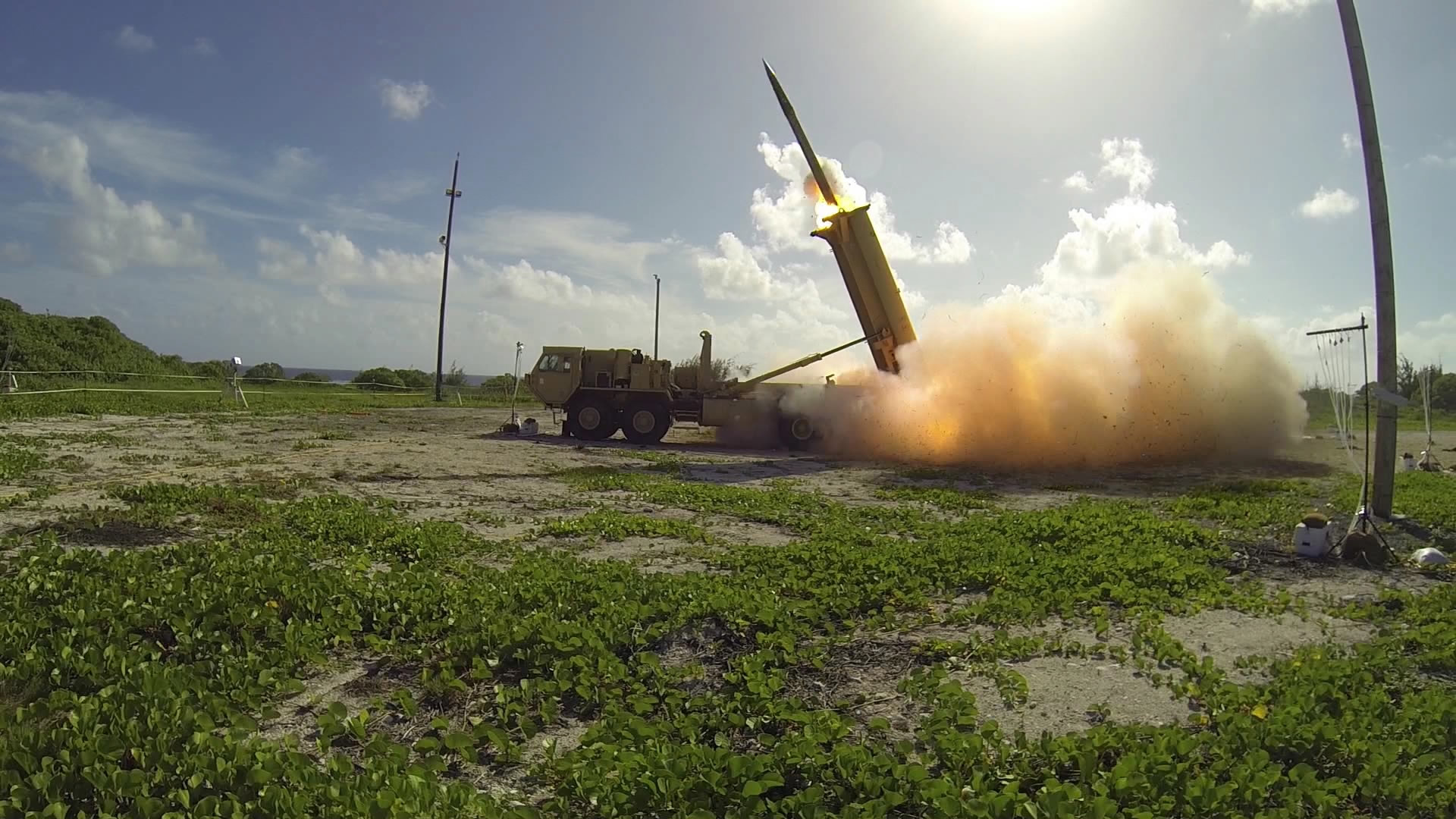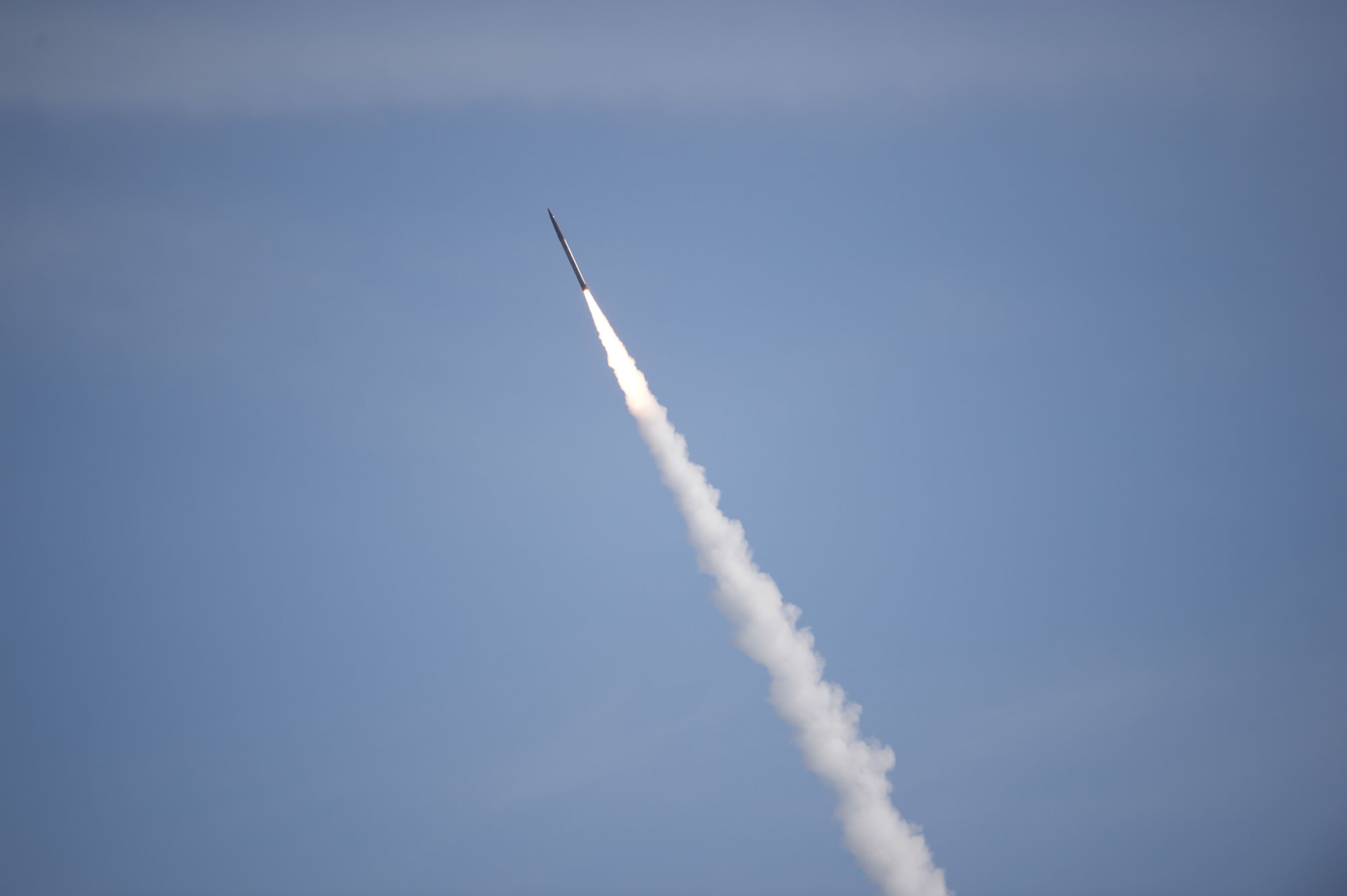
Politics
09:18, 13-Jan-2017
China, Russia agree to further respond to THAAD deployment
Updated
10:34, 28-Jun-2018

China and Russia have agreed to take further countermeasures in response to the proposed deployment of the Terminal High Altitude Area Defense system (THAAD), officials from both countries said Thursday.
The countermeasures will be aimed at safeguarding the interests of China and Russia and the strategic balance in the region, said a statement released after the sixth China-Russia consultation on security situation in Northeast Asia.
The two countries reiterated their serious concerns and firm opposition towards Washington and Seoul's constant attempts to deploy THAAD anti-missile system in South Korea, according to the statement.

This US Department of Defense/Missile Defense Agency handout photo shows a Terminal High Altitude Area Defense (THAAD) interceptor launched from a THAAD battery located on Wake Island, during Flight Test Operational (FTO)-02 Event 2a, conducted on November 1, 2015. /CFP Photo
This US Department of Defense/Missile Defense Agency handout photo shows a Terminal High Altitude Area Defense (THAAD) interceptor launched from a THAAD battery located on Wake Island, during Flight Test Operational (FTO)-02 Event 2a, conducted on November 1, 2015. /CFP Photo
China and Russia urged the United States and South Korea to address their security concerns and stop the deployment of THAAD on the Korean Peninsula, it said.
Seoul and Washington abruptly announced a decision in July last year to deploy one THAAD battery by the end of this year, triggering strong opposition from China and Russia as the US missile defense system's X-band radar can peer into the territories of the two countries.
The United States and South Korea claim that THAAD will be used to neutralize missile threats from the Democratic People's Republic of Korea, while China and Russia believe the powerful system will harm their strategic interests.
Both China and Russia believe the current situation in the Korean Peninsula and in Northeast Asia is complicated and sensitive, the statement said.

This US Department of Defense/Missile Defense Agency handout photo shows a Terminal High Altitude Area Defense (THAAD) interceptor launched from a THAAD battery located on Wake Island, during Flight Test Operational (FTO)-02 Event 2a, conducted November 1, 2015. /CFP Photo
This US Department of Defense/Missile Defense Agency handout photo shows a Terminal High Altitude Area Defense (THAAD) interceptor launched from a THAAD battery located on Wake Island, during Flight Test Operational (FTO)-02 Event 2a, conducted November 1, 2015. /CFP Photo
The two countries urged all relevant parties to exercise restraint to prevent activities which could aggravate tensions, it added.
They also reaffirmed their insistence on the goal of denuclearizing the Korean Peninsula, safeguarding peace and stability of the peninsula, and searching for solutions through dialogue and consultation.
The two countries also agreed to strengthen communication and coordination to jointly cope with the situation in Northeast Asia.
Thursday's meeting was co-chaired by China's Assistant Foreign Minister Kong Xuanyou and Russia's Deputy Foreign Minister Igor Morgulov.
(Source: Xinhua News Agency)

SITEMAP
Copyright © 2018 CGTN. Beijing ICP prepared NO.16065310-3
Copyright © 2018 CGTN. Beijing ICP prepared NO.16065310-3